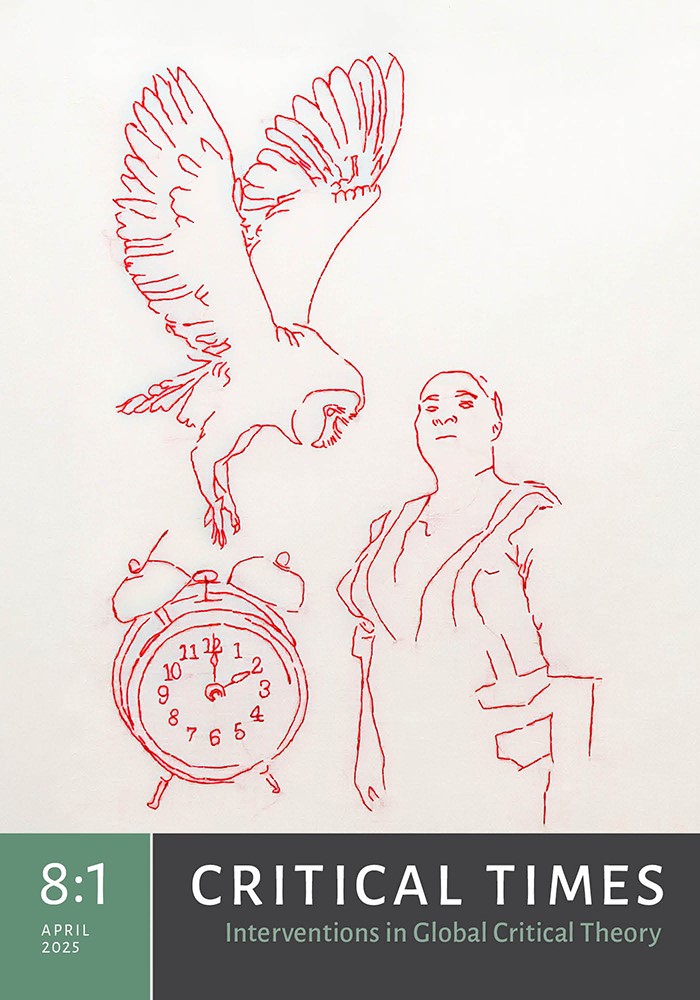
CRITICAL TIMES 8:1
Now available online through Duke University Press
Contributions to this issue of Critical Times work across historical, political, and theoretical contradictions. Scholarly essays historicize how institutions ostensibly dedicated to free speech foster censorship and repression during an ongoing genocide; examine how divergent ideological interests rely on their own versions of academic freedom; and read Ludwig Wittgenstein with Talal Asad to explore how “nonsense” permeates and structures ordinary language. An artistic intervention conveys the experiences of a range of Black South African women, challenging Western art institutions including the Venice Biennale. Two concluding scholarly essays consider the construction and maintenance of the category of “humanity.” The first offers imperial genealogies of two legal measures in India that have jeopardized the citizenship of religious minorities, while the second demonstrates that perpetrators of violence deemed to be terroristic are excluded from the category of the human and thus subject to a total eradication for which there can be no grief.
Critical Times Reading List on Palestine
As we witness Israel's ongoing war of obliteration in Palestine, we call readers' attention to the reflections on Palestine that we have published in every volume of the journal. Click here to access the reading list.
In the Midst | Blog
In the Midst conveys the difficulties of writing during critical times, and registers the importance of writing from within concrete, unfolding situations, of thinking from particular grounds, and of allowing for responsive, experimental, and tentative interventions.
Critical Times is a peer-reviewed, open-access journal committed to the intellectual and political project of critical theory. Recognizing the many forms that theory takes today, the journal works to call attention to the ongoing, collective reinvention of critique.
Critical Times features work from various world regions, with particular interests in theory from the southern hemisphere and other places beyond Europe and the United States, and in practices of cross-regional intellectual exchange and struggle. The journal is a project of the International Consortium of Critical Theory Programs and is supported by a grant from the Andrew W. Mellon Foundation.
